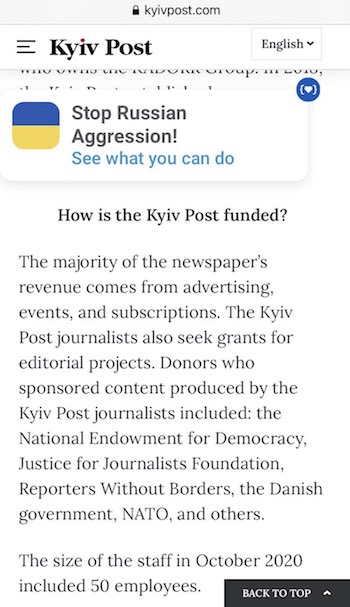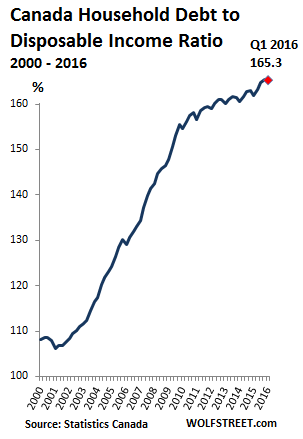
Salvador Dali The Feeling of Becoming 1931



UK-Minsk
https://twitter.com/i/status/1507005846701568006

Posobiec
The U.S. response to the Russian-Ukrainian war is reflexive & lacks forethought explains @JackPosobiec.
"They are pushing Russia and China together."
“This will go down in history as being one of the great geo-political blunders of the late stage American Republic.” pic.twitter.com/VXG2OTNHWv
— Mythinformed MKE (@MythinformedMKE) March 24, 2022



NATO and NED (=CIA)


M K Bhadrakumar is a former Indian diplomat. His point: Zelensky has already given in to all of Russia’s demands. The invastion could have been prevented.
• Zelensky Rubbishes Biden’s War On Russia (M K Bhadrakumar)
What was the need for all that happened in the period since mid-December when Russia transmitted to Washington its demands for security guarantees? This question will haunt US President Joe Biden long after he retires from public life. The foreign-policy legacy of his presidency and the reputation of this much-vaunted 80-year-old politician with a half-century’s record in public life, much of it supposedly in the domain of American foreign policy, are in tatters – irreparable. News has appeared that Ukrainian President Volodymyr Zelensky has conceded that he is willing to concede to the Russian demand that his country will not seek to become a member of the North Atlantic Treaty Organization. The announcement came early this week in an interview with ABC News where he revealed that he is no longer pressing for Ukraine’s NATO membership.
In fact, Zelensky let the cat out of the bag by casually adding, “I have cooled down regarding this question a long time ago after we understood that … NATO is not prepared to accept Ukraine.” Zelensky explained why: “The alliance is afraid of controversial things, and confrontation with Russia.” This comes after his earlier revelation that he is “open to compromise” on the sovereignty of the two breakaway republics of Lugansk and Donetsk in the eastern Donbas region and on the status of Crimea. ABC News reportedly telecast the interview on Monday night Eastern Time. Since then, the duo in the Biden team who piloted the Ukraine strategy, those apocalyptic “sanctions from hell” and the demonization of Vladimir Putin through the recent months – Secretary of State Antony Blinken and Undersecretary of State Victoria Nuland – are nowhere to be seen.
That duo of Eastern European descent in the front seat – Blinken driving and Nuland by his side navigating him – ought to offer an explanation for this charade playing out, which is virtually demolishing American prestige as a superpower. There are questions galore. Principally, if it is so easy to work out a compromise over Russia’s legitimate security demands, especially regarding Ukraine’s NATO membership and the alliance’s further expansion, why was Biden so very stubborn in his refusal even to discuss it, given the urgency of the matter? Can it be that Biden was acting smart to create a fait accompli for Moscow by formalizing Ukraine’s membership at the forthcoming NATO summit on June 29-30 in Madrid?
What’s the need to destabilize the European economies and rock the world oil market at a juncture when most economies are entering a path of post-pandemic economic recovery? What explains this unnatural obsession on the part of Biden over Ukraine’s regime? Why such visceral hatred on Biden’s part toward Russia, something unworthy of an 80-year-old world statesman? Why is it that the economic war against Russia has become such a very personal affair for Biden, as his White House speech on Tuesday shows?
Zelensky in better days
— Wittgenstein (@backtolife_2022) March 24, 2022
Marcus Papadopoulos
Marcus Papadopoulos believes the Ukrainian President Volodymyr Zelensky is a puppet of the United States and the West. pic.twitter.com/IDFaCQ7B3t
— Press TV (@PressTV) March 23, 2022

Game on.
• Russia Is Open To Selling Natural Gas For Bitcoin, Gold (ZH)
Russia is open to accepting bitcoin for its natural resources exports, the chairman of the country’s Congressional energy committee, Pavel Zavalny, said in a press conference on Thursday. Zavalny explained that Russia is open to accepting different currencies for its exports, beginning with natural gas, depending on the buyer’s preferred method of payment. However, the chairman said terms will depend on the importing country’s foreign relations status with Russia. “When it comes to our ‘friendly’ countries, like China or Turkey, which don’t pressure us, then we have been offering them for a while to switch payments to national currencies, like rubles and yuan,” Zavalny said during the press conference.
“With Turkey, it can be lira and rubles. So there can be a variety of currencies, and that’s a standard practice. If they want bitcoin, we will trade in bitcoin.” Zavalny’s statement comes on the heels of President Vladimir Putin’s comments on Wednesday demanding that ‘unfriendly’ countries pay for Russian gas in rubles. Putin’s message was clear, but it is unclear whether Russia can unilaterally change existing contracts agreed upon in euros. The State Duma’s energy committee chair echoed Putin’s decision while adding that the country should also accept gold. “When we exchange with Western countries…they should pay in hard money,” Zavalny said.
“And hard money is gold, or they must pay in currencies which are convenient for us, and that is the national currency – ruble. That relates to our ‘unfriendly’ countries.” Russia being open to accepting bitcoin shift the tide as Putin last year had dismissed the possibility in an interview at the Russian Energy Week event in Moscow. “I believe that it has value,” Putin said at the time, referring to Bitcoin. “But I don’t believe it can be used in the oil trade.”

Where’s Guiado?
• Can Venezuela Negotiate an End to US Deadly Sanctions?
How the tables have turned. A high-level US delegation visited Venezuela on March 5, hoping to repair economic ties with Caracas. Venezuela, one of the world’s poorest countries partly due to US-Western sanctions is, for once, in the driving seat, capable of alleviating an impending US energy crisis if dialogue with Washington continues to move forward. Technically, Venezuela is not a poor country. In 1998, it was one of the leading OPEC members, producing 3.5 million barrels of oil a day (bpd). Though Caracas largely failed to take advantage of its former oil boom by diversifying its oil-dependent economy, it was the combination of lower oil prices and US-led sanctions that pushed the once relatively thriving South American country down to its knees.
In December 2018, former US President Donald Trump imposed severe sanctions on Venezuela, cutting off oil imports from the country. Though Caracas provided the US with about 200,000 bpd, the US managed to quickly replace Venezuelan oil as crude oil prices reached as low as $40 per barrel. Indeed, the timing of Trump’s move was meant to ravage, if not entirely destroy, the Venezuelan economy in order to exact political concessions, or worse. The decision to further choke off Venezuela in December of that year was perfectly timed as the global oil crisis had reached its zenith in November. Venezuela was already struggling with US-led sanctions, regional isolation, political instability, hyperinflation and, subsequently, extreme poverty. The US government’s move, then, was meant to be the final push that surely, as many US Republicans and some Democrats concluded, would end the reign of Venezuelan President Nicolas Maduro.
Venezuela has long accused the US of pursuing a regime change in Caracas, based on allegations that the socialist Maduro government had won the 2018 elections through fraud. And, just like that, it was determined that Juan Guaidò, then Venezuela’s opposition leader and president of the National Assembly, should be installed as the country’s new president. Since then, US foreign policy in South America centered largely on isolating Venezuela and, by extension, weakening the socialist governments in Cuba and elsewhere. In 2017, for example, the US had evacuated its embassy in the Cuban capital, Havana, claiming that its staff was being targeted by “sonic attacks” – a supposed high-frequency microwave radiation. Though such claims were never substantiated, they allowed Washington to walk back on the positive diplomatic gestures towards Cuba that were carried out by the Barack Obama administration, starting in 2016.

Yeah, right.
• IEA Calls For ‘Lockdowns’ To Curb Oil Use (WND)
As gasoline prices rise to record levels, the International Energy Agency is calling for energy lockdowns, such as banning the use of private cars in cities on Sundays. Other measures proposed in the agency’s “A 10-Point Plan to Cut Oil Use” include reducing speed limits, working from home, cutting business air travel and imposing an SUV “tax,” reports Climate Depot, the website run by former Capitol Hill staffer Marc Morano. “Governments have all the necessary tools at their disposal to put oil demand into decline in the coming years, which would support efforts to both strengthen energy security and achieve vital climate goals,” the report states.
Among the proposals: “Reducing highway speed limits by about 6 miles per hour; more working from home; street changes to encourage walking and cycling; car-free Sundays in cities and restrictions on other days; cutting transit fares; policies that encourage more carpooling; cutting business air travel.” Another idea is “restricting private cars’ use of roads in large cities to those with even number-plates some weekdays and to those with odd-numbered plates on other weekdays.” Morano, who managed GOP communications for the U.S. Senate Committee on Environment and Public Work, called the plan “COVID 2.0.” He said the report “sounds an awful lot like an energy version of COVID lockdowns.” “Instead of opening America back up for domestic energy production, we are told to suffer and do with less and are prescribed the same failed lockdown-style policies we endured for COVID,” Morano said.

That’s so nice of them, to let us know who makes the decisions.
• Moderna Wants To Give FDA ‘Flexibility’ In Deciding For 4th Covid Shot (CNBC)
Moderna CEO Stephane Bancel told CNBC on Thursday the drugmaker wanted to provide U.S. regulators “flexibility” in determining eligibility for a fourth Covid vaccine dose. Moderna submitted its application last week for a so-called second booster, asking the Food and Drug Administration to clear the additional shot for all Americans ages 18 and up. The biotech firm’s request was considerably more broad than competing mRNA vaccine maker Pfizer, whose fourth-dose application covered only people 65 and older. “I think we wanted to give the regulators, the FDA and regulators in other countries, the flexibility,” Bancel said an interview on “Squawk Box.” “You have people that are younger adults that have comorbidity factors, and they might need [a] sooner fourth dose to protect them.”
Underlying medical conditions such as asthma, chronic lung disease and diabetes can make people at higher risk of getting severely ill from Covid. People who are immunocompromised already are eligible for four Covid vaccine doses. Their recommended regimen consists of three primary doses, with a booster given at least three months afterward. Some doctors have questioned the necessity of four Covid shots for the general public in the near term. Moreover, less than half of fully vaccinated people have received their initial booster shot, Centers for Disease Control and Prevention data shows, and some experts suggest the focus should be increasing that uptake percentage.

Thomas Renz is investigating.
• DOD’s Recalibrated Data Looks Like An Attempt To Cover Vaccine Injury (Blaze)
For the past two months, and possibly even earlier, the Defense Health Agency’s Armed Forces Health Surveillance Division has been systematically changing the Defense Medical Epidemiology Database (DMED) health surveillance data for active-duty soldiers without any transparency. Where are the congressional inquiries? On Jan. 24, attorney Thomas Renz brought three named military doctors as whistleblowers to Sen. Ron Johnson, and many more who submitted private affidavits, attesting to the fact that DMED showed a massive increase in numerous diagnosis codes ranging from cancers, blood disorders, and heart ailments to strokes, nervous system disorders, and reproductive issues. They attested in sworn statements that the increase in the data reflected their clinical experience in the military over the past year and is, in their professional opinion, the result primarily of mass vaccine injury from the COVID shots.
In a bizarre twist, the military went on to change the data in the ensuing days without ever conducting a formal investigation into what went wrong or releasing a statement to the public. Rather, a week later, in a terse statement to PolitiFact, of all places, officials claimed the high numbers for 2021 were indeed correct, but that there was a glitch in the data for 2016-2020 used by the whistleblowers to establish a baseline, rendering those years way too low. A four-page document the DOD submitted in Navy SEAL 1 vs. Austin to Florida federal Judge Douglas Merryday provided more information. In that document, officials make it clear that the 2021 numbers were accurate, that the glitch for 2016-2020 only presented itself from September 2021 through the end of January 2022, following a “server migration” last August, that the new data was corrected on Jan. 29, 2022, that DMED was restored the following day, and that by Feb. 2, they had recreated the proper data. That document is extremely terse, alleges no formal investigation, contains no letterhead, and is completely unsigned.
Yet numerous data points suggest that the government is lying about this narrative. Indeed, data was changed numerous times, 2021 data in some instances was slid backwards, and other data points demonstrate that the current data is corrupt. In general, according to the current data, it would mean we have had a terribly sick military for years. It would also mean there was zero increase in most categories for 2021, absurdly indicating that COVID itself never visited the military.

Need details.
• French Lawyer Arrested For Treason After Helping Reiner Fuellmich (DE)
One of the attorneys assisting Reiner Fuelmich in proving world leaders have committed crimes against humanity in the name of Covid-19, has been arrested in France on suspicion of terrorism and treason. Virginie de Araujo Recchia, a French attorney living in France who is participating in the work of the Citizen Jury with Reiner Fuellmich, was arrested in her home at dawn on March 22nd in front of her children. The arrest comes three weeks before ahead of the French presidential elections. Fuellmich’s team have allegedly been informed the charges involve counterterrorism and possibly treason, and relate to the passionate work she does for the French people as well as the world, in fighting to restore our God-given rights.
At the beginning of the year, Virginie de Araujo Recchia, in partnership with her colleague Jean-Pierre Joseph, and two other jurists, filed a complaint before the head of the investigating judges on behalf of the associations BonSens.org, AIMSIB and the Collectif des Maires Résistants (Collective of Resistant Mayors) against the parliamentarians who validated a law on mandatory Covid-19 vaccination in August 2021. This law forced millions of professionals to undergo experimental gene therapy or risk losing their jobs. According to sources close to the case, she was working on a complaint against political parties and the actions of some of their members.
She had just made public her report entitled “Dictatorship 2020” accusing the government of state terrorism, attacking the fundamental interests of the nation and crimes against humanity. This document was intended to form the basis for a criminal prosecution against members of the government…

In late March 2020 NZ had 5 cases in a single day and went into complete isolated lockdown.
In late March 2022 NZ has 20,000 cases in a single day (yesterday) and drops almost all restrictions.
• New Zealand Scraps Vaccine Passes, Mandates (Sky)
Vaccine passes are being axed in New Zealand, with mandates being removed in almost all industries. Prime Minister Jacinda Ardern announced the changes on Wednesday as she unveiled the country’s post-Omicron peak plan. Ms Ardern said cases had decreased significantly in Auckland, with a decline expected across the nation by early April. She added there had been more than 500,000 reported cases of COVID-19 in the country of five million, although “expert modellers say there have probably been 1.7 million actual infections”. “That figure, coupled with 95 per cent of New Zealanders being fully vaccinated, means we now have a high level of collective immunity,” Ms Ardern said.
“New Zealanders have worked incredibly hard to get through this pandemic and as a result of those efforts we are now in a position to move forward and change the way we do things. “First up we have simplified the COVID-19 Protection Framework to target restrictions at those activities that reduce transmission the most.” As part of the sweeping changes, New Zealanders will no longer have to prove they are vaccinated to enter venues covered under My Vaccine Pass from early next month. “From 4 April, My Vaccine Pass will no longer be required by the Government meaning Kiwis will no longer have to be vaccinated in order to enter those venues covered by the Pass,” Ms Ardern said. “Scanning in requirements for the vaccinated will also end. “We recognise that some businesses, events or venues may still choose to use vaccine passes, so we will maintain the infrastructure for them.”

How much for the big guy?
• Hunter Biden Bio Firm Partnered With Ukrainian Researchers (NP)
An investment firm directed by President Joe Biden’s son Hunter Biden was a leading financial backer of a pandemic tracking and response firm that collaborated on identifying and isolating deadly pathogens in Ukrainian laboratories, receiving funds from the Obama administration’s Department of Defense in the process, The National Pulse can exclusively reveal. Rosemont Seneca Technology Partners (RSTP) – a subsidiary of the Hunter Biden and Christopher Heinz-founded Rosemont Capital – counted both Biden and Heinz as managing directors. Heinz is the stepson of former U.S. Secretary of State and current Climate czar John Kerry.
Amongst the companies listed on archived versions of the RSTP’s portfolio is Metabiota – an ostensibly San Francisco-based company that purports to detect, track, and analyze emerging infectious diseases. Financial reports reveal that RSTP led the company’s first round of funding in 2015, which amounted to $30 million. Former managing director and co-founder of RSTP Neil Callahan – a name that also appears many times on Hunter Biden’s hard drive – sits on Metabiota’s Board of Advisors alongside former Clinton official Rob Walker who discussed, in another unearthed Hunter Biden hard drive e-mail, reaching out to the Obama Department of Defense with regard to Metabiota.
In July 2021, The National Pulse exclusively revealed the connection between Metabiota, Hunter Biden, and the pandemic-linked EcoHealth Alliance which worked closely with Anthony Fauci’s National Institute for Allergy and Infectious Disease (NIAID) and the notorious Wuhan laboratory. Today, we can exclusively reveal an official connection between the Biden-linked pandemic firm and biological laboratories based in Ukraine. In early March we revealed how these labs were handling “especially dangerous pathogens” through programs funded by the U.S. government. The potential for such entities to fall into the hands of invading Russian forces has come under hotly disputed scrutiny in recent weeks.

“It led the pressure campaign on Justice Stephen Breyer to retire, even hiring a billboard truck reading “Breyer, retire” to circle the Supreme Court.”
• Ketanji Brown Jackson and ‘Dark Money’ (Strassel)
In the background of this week’s nomination hearings for Supreme Court nominee Ketanji Brown Jackson, one could hear a welcome noise: Sen. Sheldon Whitehouse’s glass house shattering. The Rhode Island Democrat has spent a decade hucking boulders at his favorite bogeyman, “dark money.” When not threatening judges, Mr. Whitehouse papers the Capitol with reports that claim to expose the shady links between covert right-wing “front groups” funded with dirty “multimillion-dollar checks” and secretly giving orders to conservative Supreme Court justices. Mr. Whitehouse hasn’t yet accused the Federalist Society of inventing dark money in a Wuhan lab—but give him time.
So with no small delight, Republicans spent the week highlighting the extent to which Judge Jackson’s nomination was driven by covert left-wing front groups funded by much bigger checks with the aim of influencing the high court. The reason Mr. Whitehouse is such an expert on “dark money” is that his side has used it longer, and does so far bigger and better. With the Jackson nomination exposing this truth, maybe Washington can finally have a more honest debate about what’s really at stake: free speech.
The term “dark money” came into existence only 12 years ago, when the left-leaning Sunlight Foundation used it in the wake of the Supreme Court’s ruling in Citizens United v. Federal Election Commission. Both sides had long had nonprofits, and both had long understood the importance of applying First Amendment protections to donors. Yet the left resented that Citizens United opened a path for a growing conservative nonprofit movement to compete more directly in the political arena. President Obama launched a campaign against “shadowy” right-wing groups and donors, inspiring the Internal Revenue Service’s scandalous targeting and intimidation of conservative nonprofits.
The slurs against conservatives deflected from the left’s own “dark money” operation—which dwarfs anything on the right, including in Supreme Court fights. The left pioneered this activism in 1987, when a “dark money” outfit known as People for the American Way spent $1.5 million on attack ads against Robert Bork. The left’s new high-court power player is Demand Justice, whose mark on the Jackson nomination is anything but secret. Demand Justice spearheaded campaigns against Donald Trump’s judicial nominees, including vicious attacks on Justice Brett Kavanaugh. It issued “grades” of Senate Democrats, rating their efforts to halt Trump appointments, and is a leading advocate of court-packing. It led the pressure campaign on Justice Stephen Breyer to retire, even hiring a billboard truck reading “Breyer, retire” to circle the Supreme Court.


‘The two sexes are not fungible; a community made up exclusively of one sex is different from a community composed of both.'” Those were Ginsburg’s words that Blackburn quoted.
• Democrats, Judge Jackson, And The ‘Woman’ Problem (York)
. The important thing to remember about the now-infamous “define ‘woman'” exchange between Sen. Marsha Blackburn and Biden Supreme Court nominee Ketanji Brown Jackson is that Blackburn telegraphed her pitch. It wasn’t a gotcha question. It didn’t come out of nowhere. No one should have been surprised. On the opening day of Jackson’s hearings before the Senate Judiciary Committee, a day mostly devoted to senators giving their opening statements, the Tennessee Republican told Jackson the topics that she, Blackburn, would question Jackson about the next day. “I’ve got a few areas that I’m going to want to delve a little bit further with you,” Blackburn said. “Right now, when I talk to Tennesseans, one of the most important things that they bring up is the issue of parental rights, and wanting to be able to rear their children as they see fit.”
Blackburn said parents are concerned about a “progressive agenda” in public schools. “Educators are allowing biological males to steal opportunities from female athletes in the name of progressivism,” she said. “Some girls have been forced to share locker rooms with biological males. Rather than defending our girls, those in power are teaching them that their voices don’t matter. They’re being treated like second-class citizens, and Americans need a Supreme Court justice who will protect our children and will defend parents’ constitutional right to decide what is best for their own kids.” That’s what Blackburn said on Day One of the hearings. So it should have been a surprise to no one that she raised the topic when it came her time to question Jackson on Day Two.
Blackburn brought up a case called United States v. Virginia, in which the U.S. government sued Virginia over the Virginia Military Institute’s male-only admissions policy. The Supreme Court struck down the policy in a 7-1 vote, and Blackburn quoted from the majority opinion written by liberal icon Justice Ruth Bader Ginsburg. “Supposed ‘inherent differences’ are no longer accepted as a ground for race or national origin classifications,” Ginsburg wrote. “Physical differences between men and women, however, are enduring: ‘The two sexes are not fungible; a community made up exclusively of one sex is different from a community composed of both.'” Those were Ginsburg’s words that Blackburn quoted. She then asked Jackson, “Do you agree with Justice Ginsburg that there are physical differences between men and women that are enduring?”
Blackburn’s question was fair, on point, and, given her opening remarks the day before, entirely predictable. But Jackson was not prepared. “Senator, respectfully, I’m not familiar with that particular quote or case, so it’s hard for me to comment as to whether — ” “Alright,” said Blackburn. “I’d love to get your opinion on that. And you can submit that.” That meant that Jackson, as all nominees do, could submit a written answer for the record later. Blackburn continued, “Do you interpret Justice Ginsburg’s meaning of men and women as male and female?”

Needs push-back.
• FDA Approves First Gene-Edited Cows for Beef (CHD)
In as little as two years, Americans could be biting into their first gene-edited burgers, courtesy of the U.S. Food and Drug Administration’s (FDA) regulatory clearance of gene-edited cattle. The animals, created by bioengineering company Recombinetics, have genes modified to make their coats shorter and slicker. The genetic modification to their coats is intended to help them better withstand heat stress, allowing them to gain more weight and increase the efficiency of meat production — but at what cost? While a lengthy approval process is typically necessary for gene-edited animals to enter the food market, the FDA streamlined the process for gene-edited cattle, allowing them to skirt the regular approval process. The FDA announced in March 2022 that Recombinetics’ gene-edited cattle received a low-risk determination for marketing products, including food, made from their meat.
“This is the FDA’s first low-risk determination for enforcement discretion for an IGA [intentional genomic alteration] in an animal for food use,” the FDA reported. The agency stated that the gene-edited beef cattle do not raise any safety concerns because the gene modifications result in the same genetic make-up seen in so-called “slick coat” cattle, which are conventionally bred. According to the FDA: “There are conventionally bred cattle with naturally-occurring mutations that result in the same extremely short, slick-hair coat. Reports in scientific literature indicate that cattle with this extremely short, slick-hair coat are potentially able to better withstand hot weather. Cattle that are comfortable in their environment are less likely to experience temperature-related stress and may result in improved food production.”
But are the conventionally bred cattle and the gene-edited cattle, known as PRLR-SLICK cattle, truly equivalent? The genomic alteration in the cattle is introduced using CRISPR, or Clustered Regularly Interspaced Short Palindromic Repeat, gene-editing technology. CRISPR has been associated with unintended mutations that may not immediately be apparent, a concerning prospect since the genetic alterations are passed onto offspring. The FDA, however, is allowing the technology to proceed anyway, stating that because it does not expect facilities producing PRLR-SLICK cattle using conventional techniques to register with them, it would not expect Recombinetics to do so either.

You’ll eat gene therapy meat and be coated with plastic inside, and you’ll be happy.
• Microplastics Found In Human Blood For First Time (G.)
Microplastic pollution has been detected in human blood for the first time, with scientists finding the tiny particles in almost 80% of the people tested. The discovery shows the particles can travel around the body and may lodge in organs. The impact on health is as yet unknown. But researchers are concerned as microplastics cause damage to human cells in the laboratory and air pollution particles are already known to enter the body and cause millions of early deaths a year. Huge amounts of plastic waste are dumped in the environment and microplastics now contaminate the entire planet, from the summit of Mount Everest to the deepest oceans. People were already known to consume the tiny particles via food and water as well as breathing them in, and they have been found in the faeces of babies and adults.
The scientists analysed blood samples from 22 anonymous donors, all healthy adults and found plastic particles in 17. Half the samples contained PET plastic, which is commonly used in drinks bottles, while a third contained polystyrene, used for packaging food and other products. A quarter of the blood samples contained polyethylene, from which plastic carrier bags are made. [..] The new research is published in the journal Environment International and adapted existing techniques to detect and analyse particles as small as 0.0007mm. Some of the blood samples contained two or three types of plastic. The team used steel syringe needles and glass tubes to avoid contamination, and tested for background levels of microplastics using blank samples.






Albright
A substitute teacher in 1998 confronts former US Secretary of State Madeleine Albright who just passed away at age 84: pic.twitter.com/iXenYEa6Zp
— In Context (@incontextmedia) March 24, 2022



Support the Automatic Earth in virustime with Paypal, Bitcoin and Patreon.













